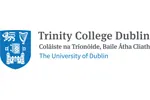About Music, BA (Hons) - at Trinity College Dublin
Music can be studied either as a single subject or in combination with one other subject as part of a two-subject moderatorship (TSM) programme. TSM is a joint honors programme; both subjects are studied for three years and one subject only is studied in the fourth and final year.
Single honor and TSM students follow the same courses. While TSM students cover all the principal areas of music studied by single honor students, the workload is considerably less than that of the single honor programme. TSM students have the same range of options as single honor students, including giving a recital in the Sophister years (three and four).
The School of Music at TrinityThe Music School has a recital room, plentiful computer workstations, a small music studio (plus more extensive, shared facilities elsewhere), excellent listening equipment, and a substantial lending collections of CDs (with a growing library of videos for students to borrow). In addition to its general holdings of books and music, the College Library also houses an extensive listening collection of compact discs.
Is this the right course for me?Studying music at Trinity is not just a means to an end; it is also a personally enriching experience of intrinsic merit. As a student of the School of Music you will develop a valuable set of skills and attributes. As an academic discipline, it fosters independence of thought, creativity, critical and analytical skills and intellectual awareness. You will also have plenty of opportunity to perform, conduct ensembles and gain experience of arts administration.
Course contentThis course provides a firm foundation in basic musical skills and, from the Senior Freshman (second) year, allows you to choose freely from a wide range of options within your main specialisation. These specialisations will be in the fields of composition, musicology, music technology and performance.
The Junior Freshman yearThe Junior Freshman (first) year is designed to ensure that you are fully competent in basic musical skills and provides an introduction to historical and analytical musicology and music technology. The main areas of study are compositional technique, keyboard and aural training, music analysis, music technology and the history of music. Courses include:
- Aural training - using moveable Doh, Solfege or Solfa. The course will improve your basic musical skills in areas such as musical dictation, oral sight-reading, and score reading
- Introduction to harmony - clarifies the relationship between surface detail and underlying harmony in the music of the common-practice period
- History of music - an introduction to the music of Baroque and early Classical period in a broad cultural context (this forms part of a four-year programme of general music history)
- Introduction to contemporary music - an introduction to music written since the late 19th century. You will study important developments in the compositional history of music of the 20th and 21st centuries, such as the development of atonality, indeterminacy, electronic and computer music, improvised music and minimalism
- Introduction to music analysis - includes re-assessment of the elements of a musical text and the ways in which they come together to form increasingly large units
- Keyboard skills - will enable you to play four-part chorales at sight with a secure rhythm; to play chord progressions over a given bass part; and to transpose a chorale or figured bass up or down a tone or semitone
- Music technology - includes computer orientation, and introduction to MIDI protocol, audio signals and computer-based notation and sequencing
- Notation and rudiments - orthography (convention of musical notation), rudiments (intervals, scales etc.) transposition and part-writing
- Introduction to counterpoint - the study of Fuxian species counterpoint, enabling you to acquire a command of basic polyphonic composition
- Style and presentation - an introduction to research methodologies and guidance in structuring an argument, essay writing and in matters of style and presentation. Part of this course is devoted to training students in critical reading of texts
Years two, three and fourIn the Senior Freshman (second) and Sophister (third and fourth) years, you will select one area of specialisation from a range that includes musicology, free composition, music technology and performance. You will have a wide range of courses to choose from within this specialisation, and may also be allowed to choose courses from other areas.
In the recent past, courses in musicology have included:
- The German Lied in the 19th century
- Music and language
- Music in education
- From sketch to score
- Film music
- Spectral composition
If you specialise in composition you will receive a thorough grounding in compositional techniques, and have the opportunity to have your work performed by other students in the Composers Forum Ensemble.
The School of Music has computer studios and workstation labs which provide up-to-date equipment for you if you specialise in music technology, while specialising in performance means you'll take a range of courses relating to performance practice and interpretation, and give a recital at the end of each of your third and fourth years.
Assessment structureIn addition to end-of-year examinations, there are regular assignments in most courses. These include essays, aural and composition exercises.
Career opportunitiesRecent graduates in music have developed careers in teaching, performance and administration, while others have undertaken postgraduate research.


